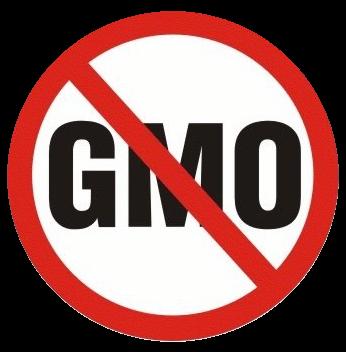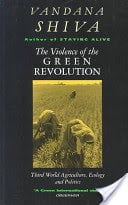Five GMO Myths Debunked by Vandana Shiva

1. Myth of the Green Revolution
I wrote a book for the United Nations University, “The Violence of the Green Revolution,” (1991) which has been republished by many publishers globally:
“As the agricultural systems of many countries are poised, as a result of the recent advances in biotechnology for what may soon come to be called the Second Green Revolution, this book is particularly appropriate. Vandana Shiva examined the impact of the first Green Revolution on the breadbasket of India. In a cogent empirical argument, she shows how the ‘quick fix’ promise of large gains in output pushed aside serious pursuit of an alternative agricultural strategy grounded in respect for the environmental wisdom of peasant systems and building an egalitarian, needs-prientated agriculture consistent with the village-based, endogenous political traditions of Gandhism. Dr Shiva documents the destruction of genetic diversity and soil fertility that resulted and in highly original fashion shows how the Green Revolution also contributed to the acute social and political conflicts now tearing the Punjab apart.

Set in the context of a sophisticated critique of the privileged epistemological position achieved by modern science, whereby it both aspires to provide technological solutions for social and political problems while at the same time disclaiming responsibility for the new problems which it creates in its wake, the author looks to the future in an analysis of a new project to apply the latest Gene Revolution technology to India and warns of the further environmental and social damage which will ensue.” Amazon.
My study was reinforced by the study done by Dr. Jatindar Bajaj, with whom I did MSc Hons in Physics from Punjab University in 1973. His study comparing pre and post Green Revolution performance showed that the rate of growth of aggregate crop production was higher in the years before the Green Revolution was introduced (1967-68) than after it.

.
The Green Revolution did not save India from famine, as the proponents of Industrial Agriculture and GMO technology would argue, in fact the Green Revolution reduced India’s production. For more information about the Green Revolution read, Nothing Green in the Green Revolution in India Today.
2. Myth of GMO Golden Rice as a Solution to Malnutrition
Here is our analysis establishing that our indigenous biodiversity and knowledge is far superior than Golden Rice to address malnutrition. Syngenta owns Golden Rice. It’s promotion as the fruits of public sector research are a blatant lie and an attempt to mislead people across the world.
Further, the Golden Rice paper had to be retracted, any fabricated claims made based on the paper do not stand.
3. Myth that Obesity is the Only Disease Related to Food
The epidemic of cancer has affected the farmers of Punjab because of pesticides. It has affected farmers of West UP. In a single village, our recent field survey revealed that there were 100 cancer victims. The farmers are getting into debt and committing suicide buying the pesticides and the citizens are dying of cancer because of the same poisons.
This is why we started the Anna Swaraj Abhiyan 2020 from Meerut, the sacred land of our first movement of independence.
Our book Health Per Acre shows we can feed two India’s with nourishing, poison free food through organic.
Our book Wealth Per Acre, for which the Forward was written by the Hon Agriculture Minister, Shri Radha Mohan Singh, shows how the negative externalities of farming with poisons are costing the country $1.26 trillion annually.
4. Myth of Safety
While the literature on biosafety is vast and I was appointed as a member of the expert group on biosafety by UNEP to create the framework for the International Law on Biosafety, two recent publications show that the assumption of safety and “substantial equivalence” is false.
One study is from the Norwegian Government, another by an Indian scientist from MIT who invented email.
New research is showing that there is no evidence of GMO safety.
Research is also showing the falseness of the assumption of substantial equivalence.
5. Myth of the GMOs Story as One of Science
The GMO story is not one of science, but of an unscientific and illegal takeover of our seeds and food.
Dr. Vandana Shiva is trained as a Physicist and did her Ph.D. on the subject “Hidden Variables and Non-locality in Quantum Theory” from the University of Western Ontario in Canada. She later shifted to inter-disciplinary research in science, technology and environmental policy, which she carried out at the Indian Institute of Science and the Indian Institute of Management in Bangalore, India. In 1991, she founded Navdanya, a national movement to protect the diversity and integrity of living resources, especially native seed, the promotion of organic farming and fair trade. For last two decades Navdanya has worked with local communities and organizations serving more than 5,00,000 men and women farmers. For more information, visit www.navdanya.org.

